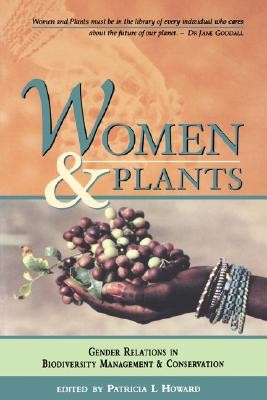| Women and Plants: Gender Relations in Biodiversity Management and Conservation Contributor(s): Howard, Patricia L. (Editor) |
|
 |
ISBN: 1842771574 ISBN-13: 9781842771570 Publisher: Bloomsbury Publishing PLC OUR PRICE: $47.47 Product Type: Paperback - Other Formats Published: August 2003 Annotation: This unique collection of in-depth case studies from Latin America, Asia, Africa, Europe and North America demonstrates the importance of women and gender relations in plant genetic resource management and conservation. It provides a state-of-the-art overview of the concepts, relationships and contexts explaining the relatively hidden gender dimensions of people-plant relations. The contributors come from a rich range of disciplines including ethnobotany, geography, agronomy, anthropology, plant breeding, nutrition and development economics. They demonstrate how crucial women are to plant biodiversity management and conservation at household, village, and community levels; and how gender relations have a strong influence on the ways in which local people understand, manage, and conserve biodiversity. |
| Additional Information |
| BISAC Categories: - Science | Life Sciences - Biological Diversity - Science | Life Sciences - Botany - Social Science | Women's Studies |
| Dewey: 333 |
| LCCN: 2002190824 |
| Physical Information: 0.69" H x 5.96" W x 9.38" (1.09 lbs) 320 pages |
| Descriptions, Reviews, Etc. |
| Publisher Description: This unique collection of in-depth case studies from Latin America, Asia, Africa, Europe and North America demonstrates the importance of women and gender relations in plant genetic resource management and conservation. It provides a state-of-the-art overview of the concepts, relationships and contexts explaining the relatively hidden gender dimensions of people-plant relations. The contributors come from a rich range of disciplines including ethnobotany, geography, agronomy, anthropology, plant breeding, nutrition and development economics. They demonstrate how crucial women are to plant biodiversity management and conservation at household, village, and community levels; and how gender relations have a strong influence on the ways in which local people understand, manage, and conserve biodiversity. Continued access to biological resources is crucial to rural women's status and welfare, and their motivations therefore are a principal driving force countering processes of biological erosion. The contributors highlight the gender biases evident in much contemporary scientific research, policy and development practice. And they seek to contribute to a number of important debates, including the determinants of genetic erosion, the significance of gender in indigenous ethno-botanical knowledge systems, indigenous intellectual property rights systems and women's entitlements therein, and ecofeminist and other debates about the nature of gender-environment relations. |